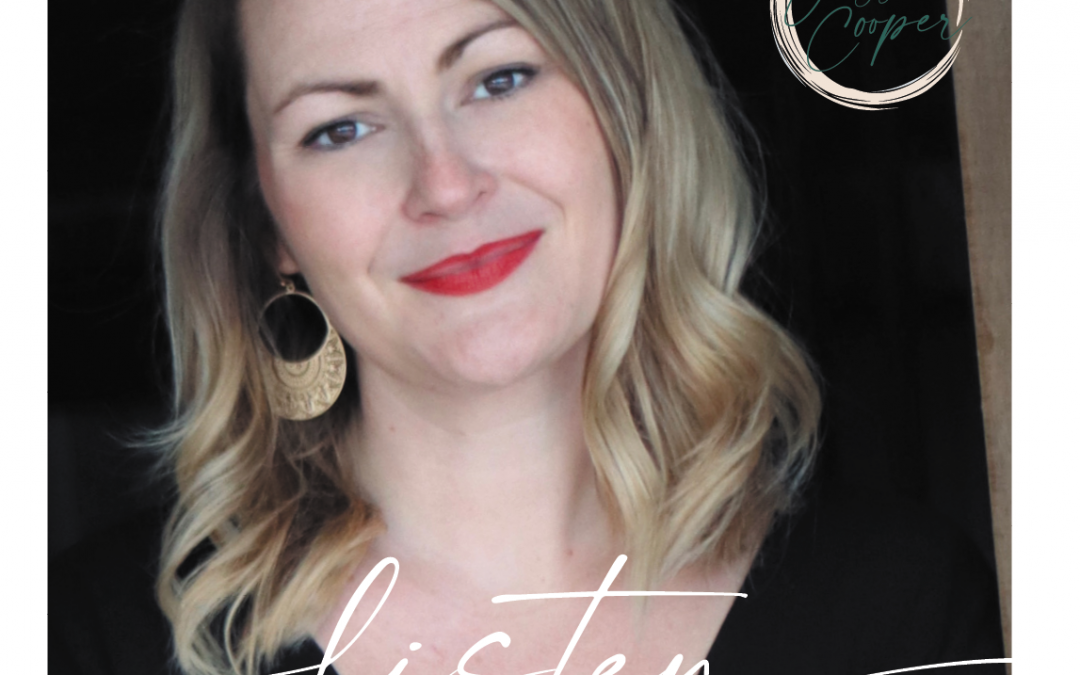
by Jessie Cooper | Aug 4, 2022
This past weekend I celebrated the 10th Anniversary of Instructional ABA Consultants. 10th! It is hard to believe that a decade ago, with no business experience whatsoever, I founded this company. A decade ago I was 25, clinically talented, and pissed as hell that my clients with state funding were not able to access services.
I celebrated our 10-year anniversary by walking into our Oak Lawn clinic and meeting the first Medicaid client in our company on his first day of ABA therapy. A decade later we are still on a mission to provide access to care across funding sources. The difference (among many) is that a decade later I stand with my work tribe leading together; it is not just me anymore. It’s us building my business.
There are many times I look at myself in disbelief. It’s hard to imagine that fresh out of graduate school with a new degree and passion I would be able to forge my way into the creation of my company. At the time I was fearless. I simply saw that there were thousands of individuals with autism and disabilities being denied care in Illinois because of their funding; medically necessary care. Money, not humanity, was making the decision for them.
Life Changing ABA Funding
As a clinician, I knew that applied behavior analysis was/and is life-changing. It is a science that seeks to understand why an individual has a barrier to learning & communication and can use maladaptive behaviors instead. Each client I worked with before founding Instructional ABA Consultants had something to say and the science of behavior analysis gave me the tools to listen.
The tools to listen to a child who was non-verbal but wanted to speak. To listen to a blind man and hear he was hitting others because he was scared when they approached him from behind. To listen to an adult with autism who routinely hit his peers because his feet hurt and he needed new shoes; he was in pain. And tools to listen to the parents who had willingly signed their children up for residential care only to find their children malnourished, abused, and traumatized. To hold all of their hands with care and kindness while offering them treatment that worked.
Yet this treatment was short-lived. When the crisis ended and our team was discharged the treatment program ended. The clients were left to live a life without ongoing care, their parents at the mercy of a system without the type of therapy and care their children needed. What might have seemed impossible to others seemed so simple to me. These families have state funding, I have a license and the science they need. Why not just put the two together? That is exactly what I did.
Making Positive Changes Yourself
In the beginning, Instructional ABA Consultants was just me and a caseload of perhaps 20 clients. I knew then that I would have to learn about how to scale my own services by building an organization that had my mission at its heart and the science implemented correctly. These past 10 years have been a journey. I have learned more about myself and how to run a business than I ever thought possible. I can tell you more someday I’m sure. But for now, the most important thing that I have learned is that as a leader listening can never stop.
The key to positive change, whether it be for a client or for the capacity of the organization itself, is just that; listening. The systems and clinical programs surrounding both the organization and the clients should always have the needs of the clients and employees at the forefront–at its heart. I have been lucky enough to have built a leadership team whose hearts emulate the mission of IABA (and people who are easily smarter than me). They also know that listening first and then creating is the foundation to our success. All of their incredible skills are used daily because of this culture and a decade later I sleep with a full heart knowing that hundreds of clients are served in the same capacity they were when I was doing it myself a decade ago.
Fighting for Basic Needs
To top off my celebration, after a good margarita, I watched “Crip Camp” on Netflix with my partner. It is a documentary about the development of the Americans with Disabilities Act and the incredible leader Judy Heumann. The documentary begins by talking about Camp Jened, which ran between 1951-1977. It was a camp for disabled teenagers that created an environment where they were treated the same as their abled peers. It was a place where they were allowed to be regular teenagers and have their voices heard. It’s heartbreaking but also true that this was not their experience outside of the camp.
Following her time at the camp, Judy Heumann became an activist who ultimately not only got the ADA enacted but also implemented. In the film, when asked how she did this, her response was simple, “I listened to the stories of my fellow Americans with disabilities without question; if they told me about their experiences I knew it was true.”
That right there is it. I’m a small fish in the big sea of life but if Judy could pass the ADA Act and over 60 years later I could start and successfully run my company by simply listening, then I know that this is a tried and true method of change. I look at our local news each day, as well as my own experiences, with a bruised heart. I am hurt by the loss of humanity in the systems that suppress us. I do not have words to describe my grief for the darling ten-year-old girl who was raped and now is part of the national focus of hate and questioning. This is not the way.
The way to rebuild our world and the systems that support us is not by challenging the experiences of our fellow human beings. The way to build just about anything is to listen. Listen, believe, and do something. Even if that something is just to make your small corner of the world a better place.
Xoxo,
Jessie Cooper

by IABA Team | Jul 19, 2022
There are many types of therapy that can help with specific symptoms of Autism. One type of therapy that is often underlooked when it comes to treating ASD is occupational therapy (OT). In tandem with a solid ABA program, OT can have extremely beneficial effects on development.
OTs that specialize in helping children with ASD are able to evaluate the needs of a child and put a unique therapy program in place. Let’s take a look at what OTs do when it comes to helping those with autism.
Occupational Therapy & Autism
The first thing to go over is the skills that OTs can help individuals with autism learn. Skills OTs help with include:
- Cognitive skills
- Communication
- Motor skills
- Sensory skills
- Social skills
Each of these skills has specific ‘sub-skills’ OTs focus on:
- Cognitive Skills. Cognitive Skill training focuses on attention, mental stamina, and focus.
- Communication. Communication training focuses on speech and nonverbal communication.
- Motor Skills. Motor skill training focuses on balance, posture, and using objects/tools.
- Sensory Skills. Sensory skill training focuses on responses to sensory stimuli and sensory defensiveness.
- Social Skills. Social skill training focuses on emotional regulation, interacting with others, and behavior.
How Does Occupational Therapy for Autism Work?
Occupational therapy for autism is different from standard OT for several reasons. OTs with an autism-centered practice work with both clients and their families, making sure plans stick inside and outside of a clinical setting. OTs will help families understand any cognitive-behavioral approaches being used so they can continue at home.
Autism OTs emphasize mental health and well-being in order to make clients feel safe in the environment where therapy takes place. Occupational Therapy for autism often includes teaching self-care routines, so making clients feel safe both in the clinic and at home is essential for success.
Goals of OT for Autism
Like other autism therapy methods, OT focuses on helping a person with autism’s quality of life. The ultimate goal is giving clients as much independence as possible. The areas of life OT therapy for autism focuses on include:
- Independent communication
- Working with others
- Listening
- Gratification and delayed gratification for completing tasks
- Expressing feelings and emotions to others
- Creating and maintaining friendships and other relationships
While the goals of OT may seem to line up with the goals for most autism therapies, OTs are able to combine their occupation therapy training with ABA or cognitive behavioral training to create an occupational program perfectly suited to the needs of a person with autism.
ABA Therapy from IABA Consultants
If you have questions regarding autism treatment, education, or plans to use ABA therapy, we are here for you! Our goal is to make sure no family is turned away due to financial constraints. Our therapy team would love to talk to you. Find the location closest to you and give us a call. We’re here for you.

by IABA Team | Jul 5, 2022
Long trips and vacations with kids can be difficult. Keeping a child occupied and calm during a trip requires patience and preparation. Keeping a child with autism occupied and calm during a trip may require some extra patience and planning.
This article is going to go over tips, tricks, and good general information on traveling with an autistic child. The two sections in this article will include information on road trips and air travel, as both have unique challenges.
Tips for Flying with a Child with Autism
Air travel is a big change for any child with autism. The sensory overload that accompanies every flight can be a huge challenge. The noise, the pressure, the small area, and the regimented process are all obstacles that a family will need to prepare for before a flight.
Before flying with an autistic child, you will want to consider taking the following actions:
- Prepare Weeks (or Months, if possible) Ahead. Talk with your child’s therapist or doctor about how to best start the process of preparing for a flight. Getting a plan together early on will help remind you about things you may need to prepare your child for.
- Create a Calendar. Having a visual indicator for your child to see indicating the upcoming trip can help them prepare for the change.
- Talk to Your Child About the Flight. Go over all the information about planes, airports, and travel you have planned with your child before the trip. Ask your child questions about the trip and make sure they have an understanding of the upcoming trip.
- Pack Essentials. Make sure to pack any of your child’s favorite toys, activities, and snacks before the flight. Remember that liquids over 3oz. cannot be brought through airport security!
- Pack Entertainment. Make sure your child has their favorite long-term toy or activity-packed. Focusing on something they love can make the long trip seem much shorter.
- If Your Child Has Special Needs: Talk to the Airline or Airport Before Your Flight. If your child needs special treatment or has other needs not normally provided or permitted by airlines, make sure to call them as early as possible! Airlines can be very accommodating, so make sure to talk to your airline about any and all of your child’s needs.
- Do a Practice Airport/Airline Security Run. Talk to your child’s therapist or pediatrician about the best ways to simulate an airport or airport security. Devise a plan and make sure your child is as prepared as they can before the real thing.
Road Trips & Autism
Taking a trip or going on a car vacation is much easier than flying for a child with autism. This doesn’t, however, mean it will be a walk in the park!
Leaving home and routine behind is difficult for children. Taking a child with autism out of an expected routine and schedule will take some preparation to mitigate emotions.
Just like with flying, there are some things you can do prior to a road trip to help ease the apprehensions of your child:
- Create a Calendar. Giving your child a visual indicator for when they will leave home can help them understand when the trip will start.
- Talk to Your Child & Communicate the Trip Plans. Creating an understandable narrative around where & why you are traveling can help your child understand what is happening. Ask them questions about the trip, answer their questions about the trip, and be sure to emphasize the things they will enjoy!
- Have Your Child Help Prepare for the Trip. Helping mom or dad is always fun, especially when it’s for something special. Having your child help you with packing or preparing the car for the road trip may be a great way to imbue an understanding of what to expect.
- Show Pictures of Hotels or Houses You’re Staying At. Make sure to familiarize your child with your destination and what they can expect when you get there. If you are staying with relatives, contacting them to prepare a room, followed by sending pictures of the prepared space, can make your child understand where they are staying is safe.
- Pack the Essentials. This is imperative for any road trip–a car has fewer accommodations than a plane, namely, there are no snacks & no bathrooms. Be sure to pack all of your child’s favorite toys and activities along with a cooler filled with favorite snacks & drinks.
- Schedule Gas Station/Rest Area Stops. Letting your child know when you will be stopping can help them understand the length of the trip. Creating a visual calendar of stopping times/points can help even more.
Make sure to make your car as comfortable as possible for any road trip. Bringing favorite comfy blankets or pillows can help your child feel more at home in the car.
ABA Therapy from IABA Consultants
If you have questions regarding autism treatment, education, or plans to use ABA therapy, we are here for you! Our goal is to make sure no family is turned away due to financial constraints. Our therapy team would love to talk to you. Find the location closest to you and give us a call. We’re here for you.

by IABA Team | May 23, 2022
School is almost out for summer. This doesn’t mean that your child will need to be at home all summer. There are many summer programs, activities, and events that are designed for children with autism in mind.
Before looking at fun activities and programs, however, be sure to talk with your child’s therapist. They may have some great summer programs that could be a great option.
Summer School and Therapy
Many autism and ASD programs don’t follow a typical school schedule. If your child attends a school or clinic that offers year-round care and therapy, see what they offer.
Before signing up for any summer school or therapy plans, however, you may want to ask a few questions:
- Will my child have the same instructor or teacher?
- Are the hours the same?
- What differences are there between summer & school year programs?
- Is the program the same?
- Is the provider (both for teachers & insurance) the same?
Of course, these questions may not be necessary if your child attends a year-round school or clinic. Always be sure that year-round schools offer the same services in summer–changes could lead to some behavioral hiccups.
Events & Festivals
We’ll preface this by saying that larger events are not for every child with autism. Big crowds and big noises can lead to sensory discomfort that could easily be avoided by not attending specific events (like music festivals or sporting events).
With that said, there are tons of events that go on locally every summer. Things like:
- Farmer’s markets
- Arts & crafts events
- Outdoor sales
- Certain areas or events at county fairs
Be sure that your child is OK with any expected noises or other sensory overloads that could be present at a given event. If you are unsure what an event entails or how big the expected crowd is, call the event organizer. Some events may have safe areas or activities specifically designed for children with autism.
Fun Summer Activities at Home
Of course, you can always set up some great summer activities for your child in their favorite comfort zone–home. If you child shows interest in specific types of activities, the following list may get you started towards creating some amazing activities:
- Camping (not necessarily overnight–tents and sleeping bags are fun any time)
- “Pool” days (inflatable pools, sprinklers, etc)
- Picnic days (help with packing the picnic and eating in the yard)
- Art activity days (coloring, painting, chalk, play-doh, etc)
- Rainy day reading or movies (snacks & entertainment)
These activities are just the tip of the iceberg. If your child has interests or loves activities that aren’t on this chart… find a way to incorporate them into their summer schedule!
ABA Therapy from IABA Consultants
If you have questions regarding autism treatment, education, or plans to use ABA therapy, we are here for you! Our goal is to make sure no family is turned away due to financial constraints. Our therapy team would love to talk to you. Find the location closest to you and give us a call. We’re here for you.

by IABA Team | May 19, 2022
IABA Consultants was recently featured in the spring 2022 issue of Milestones magazine. Click the image below to check out the article!






